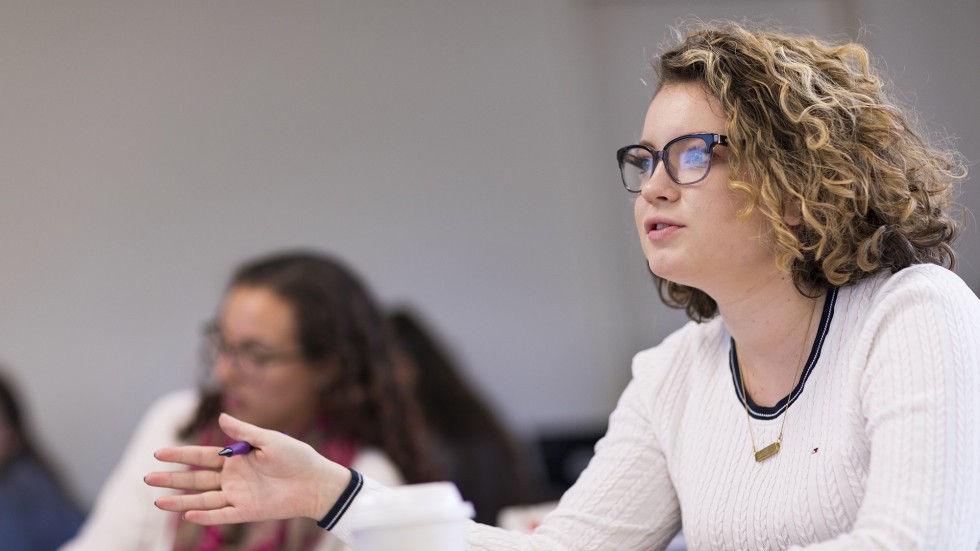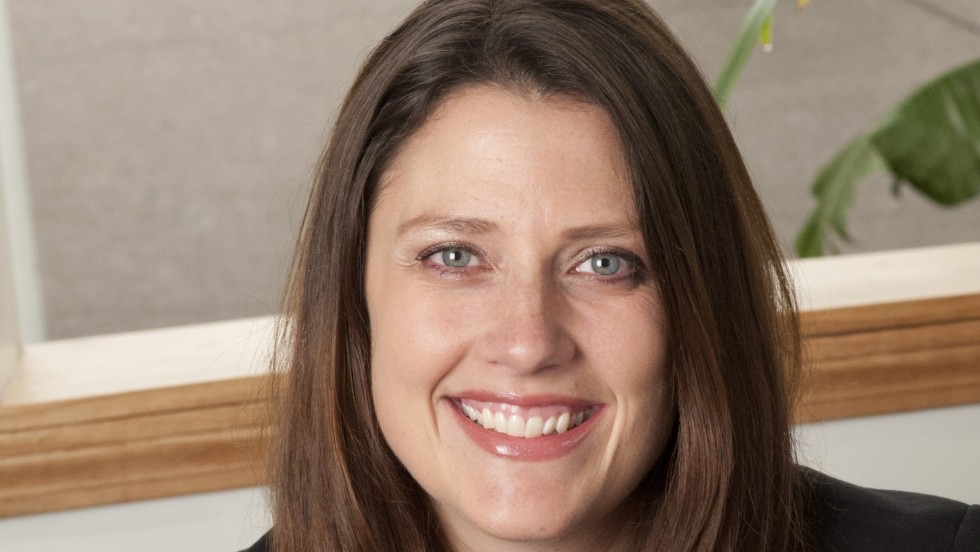Register for a Graduate Teacher Education Course
Our non-degree option gives you the unique opportunity to take up to two graduate-level courses before applying for admission.
Educators can also earn 67.5 professional development points (PDPs) for taking a single graduate course.

Advance Your Professional Development
Are you interested in Stonehill’s graduate teacher education programs but not sure you’re ready for an advanced degree?
Our non-degree option gives you the unique opportunity to take up to two graduate-level courses this summer to get to know Stonehill before formally applying to a degree program. Credits earned count toward your degree if you decide to matriculate in the program. Educators can also earn 67.5 PDPs for completing a single graduate course.
Whether you're seeking a teaching license or master's degree, or you wish to advance your professional development with a single course, Stonehill can help you reach your goals.
5 Reasons to Take a Course This Summer
- Immediately start working toward your career goals
Why wait to advance your career? A summer course at Stonehill College helps you gain valuable knowledge and skills to qualify for promotions, switch industries or build expertise in your current role. - Earn 67.5 PDPs
PDPs are essential for educators and professionals maintaining certifications or fulfilling continuing education requirements. Completing a summer course at Stonehill earns you 67.5 PDPs to support your career growth. - Online and hybrid options
We understand that life is busy. That’s why Stonehill offers online and hybrid courses, allowing you to learn from anywhere while balancing personal and professional commitments. - Flexible course schedule meets the needs of working professionals
Whether you work full time, have family responsibilities or need a more convenient learning experience, summer courses at Stonehill College offer flexible scheduling options to fit your lifestyle. - Apply credits earned to a degree or certificate
Make the most of your summer by earning credits at Stonehill that apply toward a degree or professional certificate, moving you one step closer to your academic and professional goals.
Summer 2025 Online Course Offerings
This is a preparation course to help students prepare for the required Massachusetts Tests for Educator Licensure. In this preparation course, students will review strategies for the various MTEL tests. The course will cover test-taking strategies and approaches, practice tests, and offer targeted feedback.
This course runs June 30–August 17.
This course explores literacy for young learners and how to effectively teach literacy to all students. Course participants will learn how to design literacy lessons, utilizing universal design for learning and assessment practices, to create thriving readers and writers. Participants will learn how to design and implement lessons focused on phonemic awareness, comprehension, oral reading fluency, and vocabulary. Strategies to assess students’ literacy growth will also be addressed.
This course runs June 30–August 17 on Tuesdays from 4:30–8 p.m.
This course explores language and literacy instruction for middle/high school students with disabilities. The course will emphasize how to design literacy lessons for diverse adolescent learners, including how to assess students’ literacy progress. Course participants will learn about all aspects of reading and explore how to support students’ needs in all areas. Participants will also learn specific strategies to support students writing skills throughout all content areas.
This course runs June 30–August 17 on Tuesdays from 4:30–8 p.m.
This course will examine intersectionality and the complex racial, gendered, and class-based dimensions that perpetuate inequitable environments and opportunities in schools. We will explore critical race theory (CRT) and its theoretical relevance as a framework to examine and challenge disparate educational opportunities for students of color. The course will offer an examination of the policies, procedures, and structures that perpetuate disproportionality and overrepresentation. This course will analyze assumptions about race, gender, and class, as well as how these dynamics play out in U.S. public schooling and history through political, sociological, theoretical, and pedagogical lenses.
This course runs June 30–August 17 on Thursdays from 4:30–8 p.m.
Summer 2025 On-Campus Course Offerings
This course examines and unpacks contemporary issues in the field of education and provides prospective teachers with a beginning foundation for understanding the teaching profession and the U.S. education system, including policy and governance. The historical, legal, ethical, and pedagogical foundations for social justice education and democratic education will be explored, as well as the education reform context and emerging policies. The course will include an examination of professional ethics and standards.
This course runs June 30–August 17 and meets in-person on July 12–13, 22, 29 and August 5 from 4–9 p.m.
This course explores supportive, preventative, and proactive approaches to addressing the social and academic behaviors of students with disabilities and other diverse populations. Strategies for developing a positive classroom climate to support social and emotional development, including trauma and anxiety, will be central to the learning of the course. A variety of approaches, including the connection between communication & behavior, identifying contributing factors to challenging behavior, functional behavioral assessment (FBA), and behavior support plans, will be explored.
This course runs June 30–August 17 on Tuesdays from 4:30–8 p.m.
Summer 2025 Course Offerings in Boston
This course explores how curriculum built on the goal of student understanding, integrated with instructional approaches that emphasize reaching every learner, can provide teachers with more specific teaching targets and more flexible ways to reach them. Students will examine the teaching, instruction, and curricula required to meet the needs of diverse learners, who by virtue of their experiential, cultural, and socioeconomic backgrounds, challenge traditional curriculum and instructional programs.
Course participants will determine how to deconstruct curricular barriers and create and apply curricular solutions, including assistive technology and AAC, to maximize access and academic success.
This course runs May 10 – August 17 and meets in-person in Boston on May 10, June 7, July 17 from 8 a.m.–5 p.m. and May 29, June 26 and July 31 from 4:30–7 p.m.
Graduate Teacher Education Tuition and Fees
Tuition and fees for the graduate teacher education programs are calculated on a per-credit basis. Additional fees may apply.
| Tuition | Rate Per Credit |
|---|---|
| Cost per credit hour | $763 |
| Skyhawk Rate (Applicable to alumni, employees and approved partners) |
$610 |
Meet the Director
Contact us with any questions.
Graduate & Professional Studies Admission assists students as they explore graduate and professional opportunities offered at Stonehill College.
